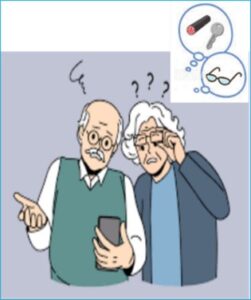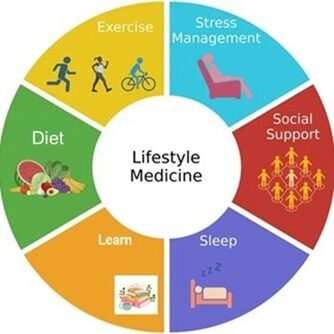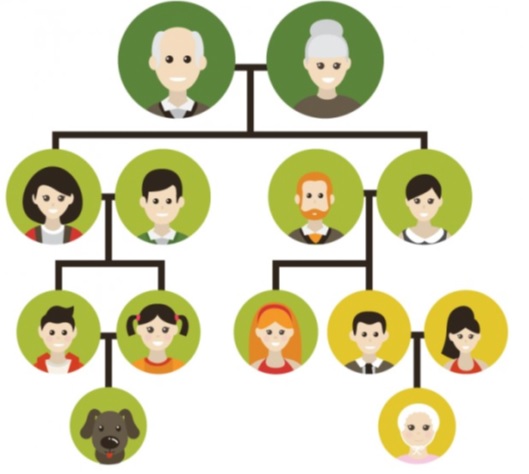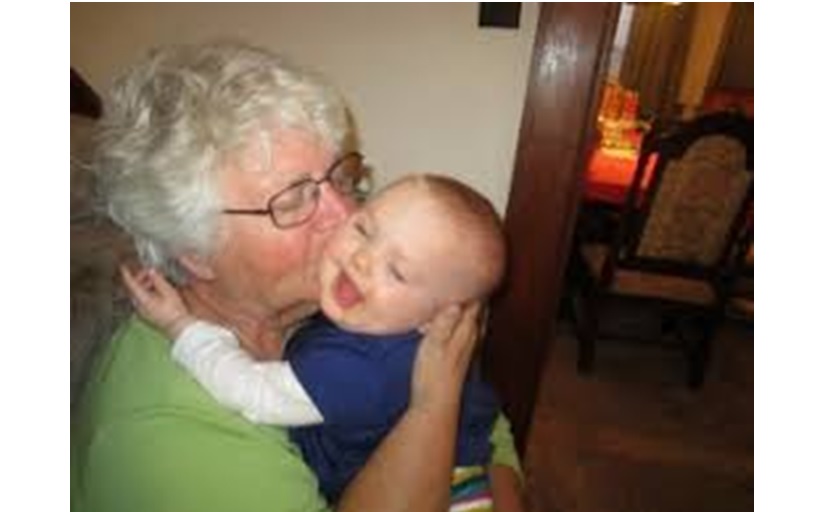Step One
Mental Health
age 65 - 75
Test your Brain.
Cognitive Health Screening
Is my forgetting normal or early disease?
Try using our Beta version here.
AD8 Paper & Pencil test - Take a 90-second test. Simply answer the questions with yes or no. We then score and email the results back to you.
Now use your voice - Now repeat the same test, this time reading the questions aloud and answering yes or no. See how here.
If your score is not normal, you may have Mild Cognitive Impairment (MCI) or Early Dementia. We give you an option to find out.
Cookie Theft Test - Just record what you see in the following picture. Take a minute or two and speak clearly. We will analyze your voice and again email you back the results. You should now be classified more specifically as MCI or some form of Alzheimer's disease or Related Dementia (ADRD). Only you will know once your results tests are emailed.
also, Caregivers find value in the service too. They can either take the test themselves or give answers for scoring the Cognitive Status of someone under their care.
Step Two
Mental Health
age 65 - 75
Improve your Brain.
S.L.E.D.S.S.
Lifestyle Medicine
stands for Socialization, Self-Learning, Exercise, Diet, Stress, and Sleep.
Try using our Beta version here.
A Guidance / Feedback Tool for Improving or Maintaining Cognitive Health.
S.H.I.E.L.D. also is used for Sleep, Handling (stress), Interaction, Exercise, Learning, Diet
Coined by Dr. Rudy Tanzi, a Professor of Neurology at Harvard University and Massachusetts General Hospital. Also, studied and published by Dr. Dean Ornish at UCSF. See the research study here.
Make healthy lifestyle choices, and then go back and retake a Cognitive Test to see how you are doing. Together with family and friends make healthy lifestyle choices, then go back and measure how your cognitive health has improved.
You can also join support groups to learn from their experiences. Finally, you can avail yourself of Cognitive Behavioral Therapies (CBTs) to combat stress, anxiety, or depression.
Scores are presented easily using a Smart Mirror. Ask "What's My Score" each morning while brushing your teeth. The Mirror recognizes only your voice and uses Augmented Reality to display current results.
Step Three
Psychosocial Health
age 75 -85
Move from Me to We
------- The Family Circle --------- Kin-Keeper Dashboard
See ElderCare as a Family Story.
Try using our Beta version here.
.. A personalized AI Agentic Layer Platform .. for Family Kin-Keepers.
A tool to manage Family & Friends Communication. The effort brings forth a personal digital assistant for Mom or Dad.
Here's how
Families are stories of inclusion - Communication starts with family harmony. We teach you how to elaborate a kin story that includes and sustains all members, especially your elders. Find your story. If missing create one that harmonizes your entire family and ensures a path of inclusion and understanding.
Start with News
News from the Grandchildren - After creating a Family Circle, use it to send daily family news to Grandma and Grandpa, using the voice of the grandchildren Have the elder hear it as a flash briefing on an Amazon Echo Dot. Try it now, by uploading your voice and text (PDF) files to our voicemail server here.
Family news episodes focus on weaving today's facts and events into a coherent family story. Store past voice recordings on your laptop or pay us to store them in our cloud.
Memory Assistance - This is a tool that remembers things. It knows everyone in the Family Circle and helps Mom or Dad with their memory. Here's how: Cloud-stored voice recordings are converted to text and then parsed using AI/ML pattern templates to extract important details like names, dates, and events. The family or voice stream analyst iteratively curates the resulting voice dictionary. An AI Langchange model then makes the data available via voice command. The elder can ask the name of a grandchild, and remember their birthday, as often as desired. We use popular, inexpensive voice assistants to keep everyone in the loop.
Caregivers also find value in the service. They can ask for the history of those under their care or engage with members of the Family Circle for advice and guidance.
Step Four
Psychosocial Health
age > 85
Understand Elder words
An Assistive Self Translator
End the confusion, frustration, and anxiety of elders being misunderstood.
A powerful AI-based Personal Assistant.
Our Approach:
We use IoT devices like AI Parrots, Smart Mirrors, or Robots. These become AI User Interfaces, their digital twin, that bridge the gap of incomprehension that accompanies Dementia. Our devices give elders feedback and assurance that their words can be understood. The magic comes from sophisticated Machine Learning and Natural Language Processing algorithms and contextual sensors that can pinpoint intent.
An AI Cognitive Assistant
Be patient. The magic does not happen in a black box. It initially requires corrective iterations that can only be made by those closest to the elder: family and friends. Voice stream analysis is patient, compassionate work that keys off your understanding of emotional forms of communication that remain until death even when suffering from Alzheimer's. However, once done even for a few words, confidence emerges on both the elder and the listener's side. The accomplishment then propels all onward to understanding utterances for things basic to the activities of daily living.
There's also something for the caregivers. In addition to being translators, Smart Parrots can also listen to voice sounds for biomarkers that alert the clan to medical conditions. If desired, relatives can turn the Smart Parrot towards themselves to infer the probability of inheriting AD.
It all starts with Trust.
Next Steps...
Learn how our Parrots work with Sundowning in this brief video.






